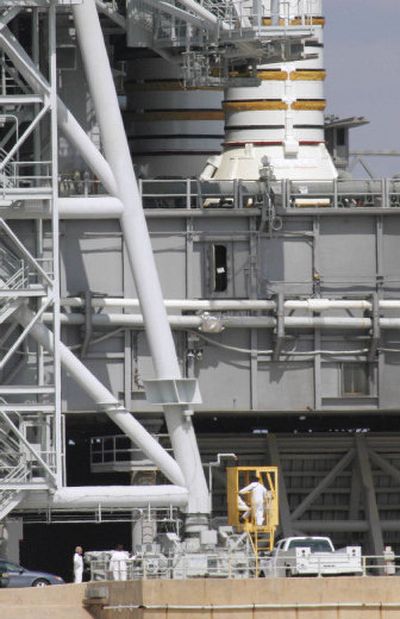Potential Discovery launch pushed back

NASA officials pushed back the earliest possible date to launch the shuttle Discovery by another day to Sunday, saying they still have no idea what caused a perplexing sensor failure in the shuttle’s external fuel tank.
Even a Sunday launch would require an “extremely lucky” break, said N. Wayne Hale Jr., deputy shuttle program manager, at a news conference Thursday.
“If we go in and wiggle some wires and it works, then we can go Sunday,” Hale said.
More likely, the launch will be delayed at least into the middle of next week, National Aeronautics and Space Administration officials said after meeting for more than two hours to draw up a plan to resolve the problem that resulted in the scrubbing of Discovery’s highly anticipated launch Wednesday.
If engineers have to go inside the external tank or the aft section of the orbiter, the delays could grow longer, Hale said.
The current launch window, which would allow Discovery to reach the International Space Station, closes on July 31. Another opportunity would not open until September. Such a delay could impact future shuttle flights and the space station assembly schedule.
Another big unknown is weather, which is always unpredictable in Florida during the summer. Forecasts called for a 40 percent chance of rain and lightning on Sunday, increasing to a 60 percent chance of rain by Tuesday.
The malfunction involved one of four sensors on the hydrogen side of the external fuel tank. There are four other similar sensors that monitor liquid oxygen levels in the tank.
During a routine test 2 1/2 hours before launch, the sensor failed to respond correctly to commands from mission control.
A dozen engineering teams across the country have been mobilized to unravel the cause of the failure.
The sensor, known as an engine cutoff sensor or ECO, is a critical component designed to shut off the shuttle’s main engines just before the fuel is depleted.
A malfunctioning sensor could allow the engines to continue firing after the fuel is gone or prematurely shut off the engines, preventing the orbiter from reaching space.